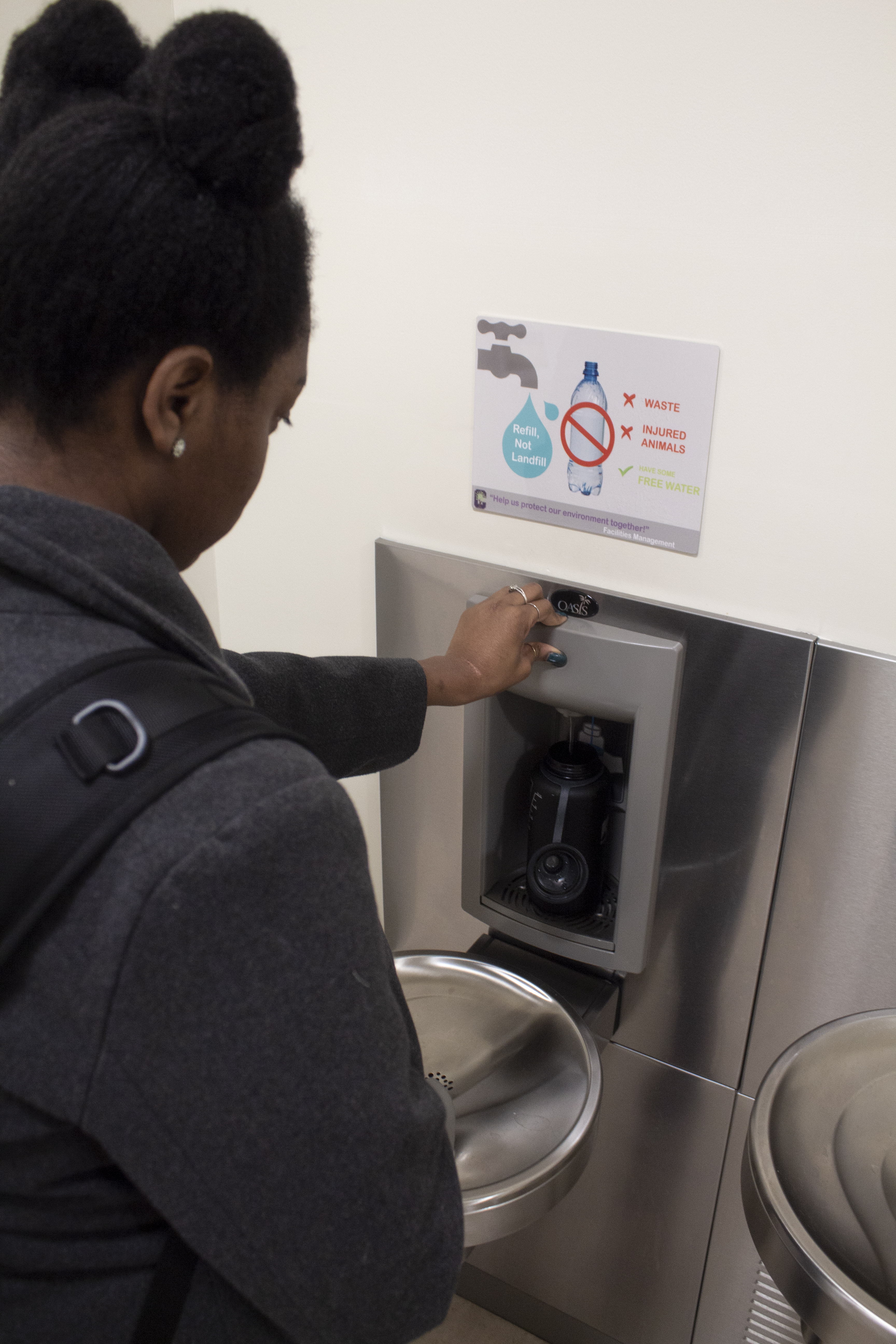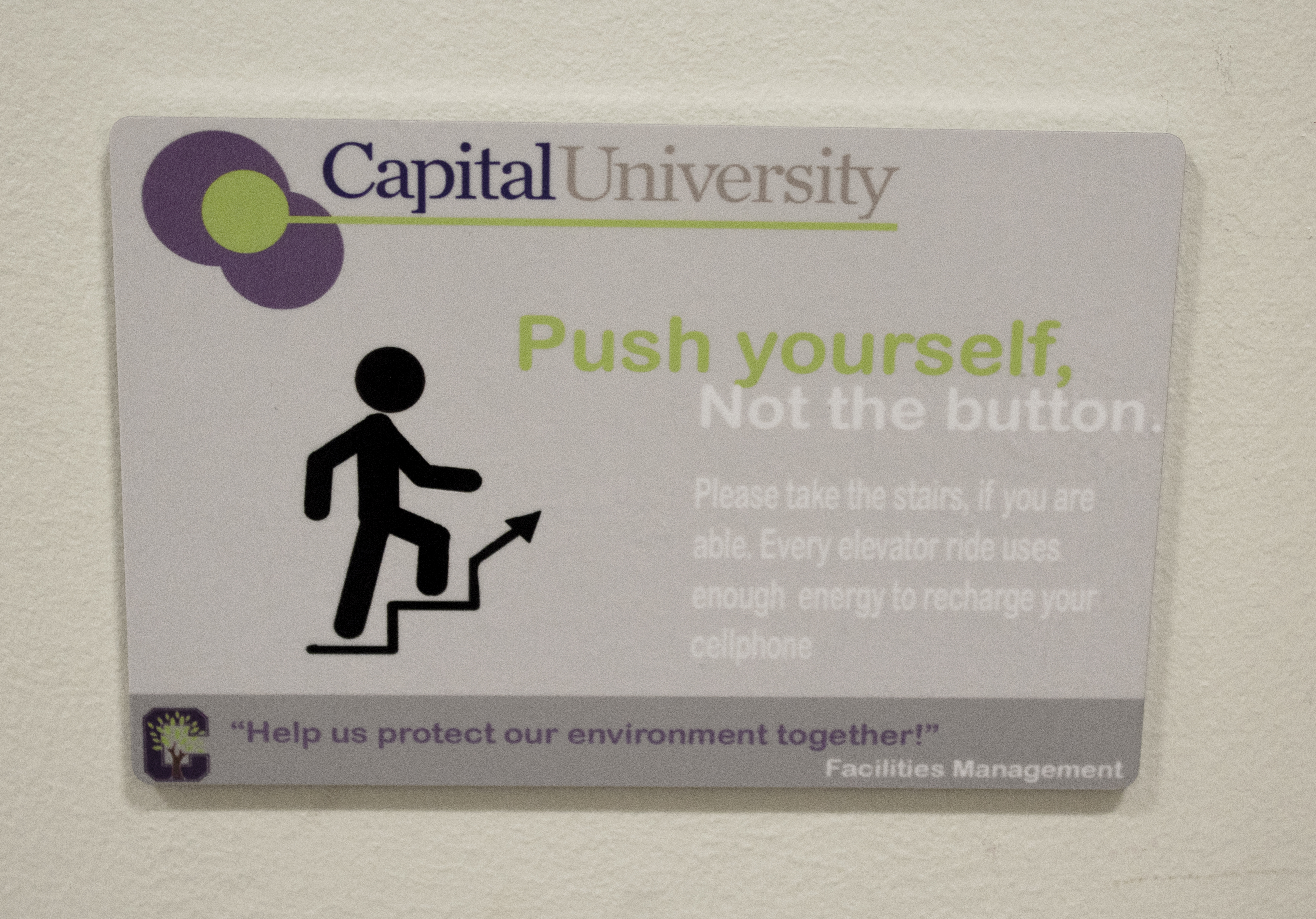Riding an elevator uses as much electricity as fully charging a cellphone. New signs in buildings on campus remind students of this, encouraging them to take the stairs instead.

Similar plaques can be found near water bottle filling stations, and these signs are just one small part of conservation efforts. Paul Matthews, director of Facilities Management, shared a few of Capital’s most prominent sustainability initiatives.
An ongoing project is the re-lamping of campus buildings, which is when fluorescent and halogen powered light fixtures are swapped out for modern LEDs. Currently, Troutman Hall is being converted. This switch results in tremendous energy savings; Trinity Chapel, which was re-lamped in 2017, has cut Capital’s electricity bill by $12,000 each year.
In addition to reducing energy usage, Matthews said that Capital is working on sourcing electricity from renewable methods. In 2018, 11 percent of the university’s energy load was offset by wind power, and Facilities is working to expand this number in upcoming years.
Another successful eco-friendly venture is composting. In January, 12,700 pounds of food scraps—that would have otherwise been taken to a landfill—were composted. This waste is then converted into organic fertilizer, which is used on campus gardens and is also distributed to local farmers.
A final new undertaking is the inclusion of an electric vehicle charging station, which will likely be installed in the S lot on Pleasant Ridge Avenue.
“We’ve got a lot of activity going on when it comes to saving energy,” Matthews said.
While all of these efforts are commendable, direct student participation in them is limited. Senior religion and philosophy major Andrew Thompson said that students have considerable power to contribute to the green movement.
Recycling facilities for plastic bottles are available across campus, and plastic grocery bag recycling is available in the Trinity Complex. Alpha Phi Omega, a service fraternity on campus, collects donations of old denim jeans and makes them into shoes to be sent to developing countries in Africa.
Opportunities for conservation are available all around us, and Thompson emphasizes that every one of our actions has an impact on the environment.
“If we don’t think critically,” he said, “we might end up facing a very unfortunate reality that’s closer to what we see on movie screens.”
Both Matthews and Thompson agree that conservation is an all-hands-on-deck movement, which is why Capital University Sustainability Intern Youting Chen has started the Purple Pledge.
The Pledge is a way is get the entire CapFam involved in conservation, and it can be found on Capital’s Sustainability webpage. Included is a list of several simple suggestions of ways to incorporate conservation into daily life. Chen plans to expand the Pledge, and she is working to increase awareness of energy preservation on campus.

